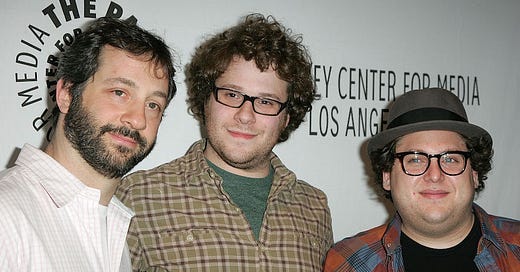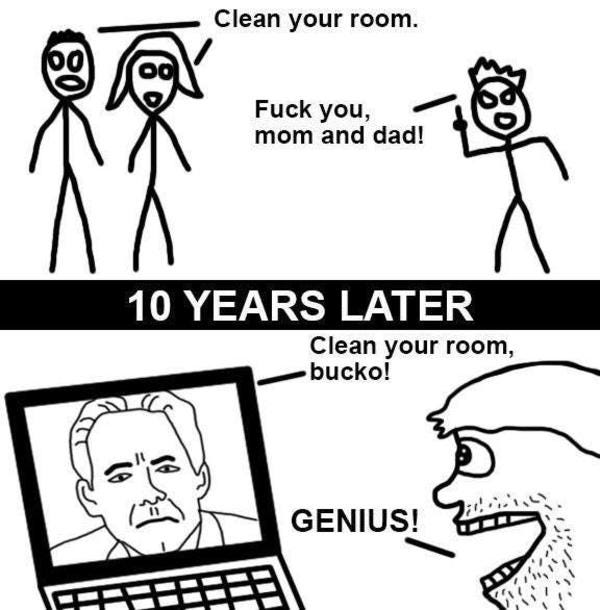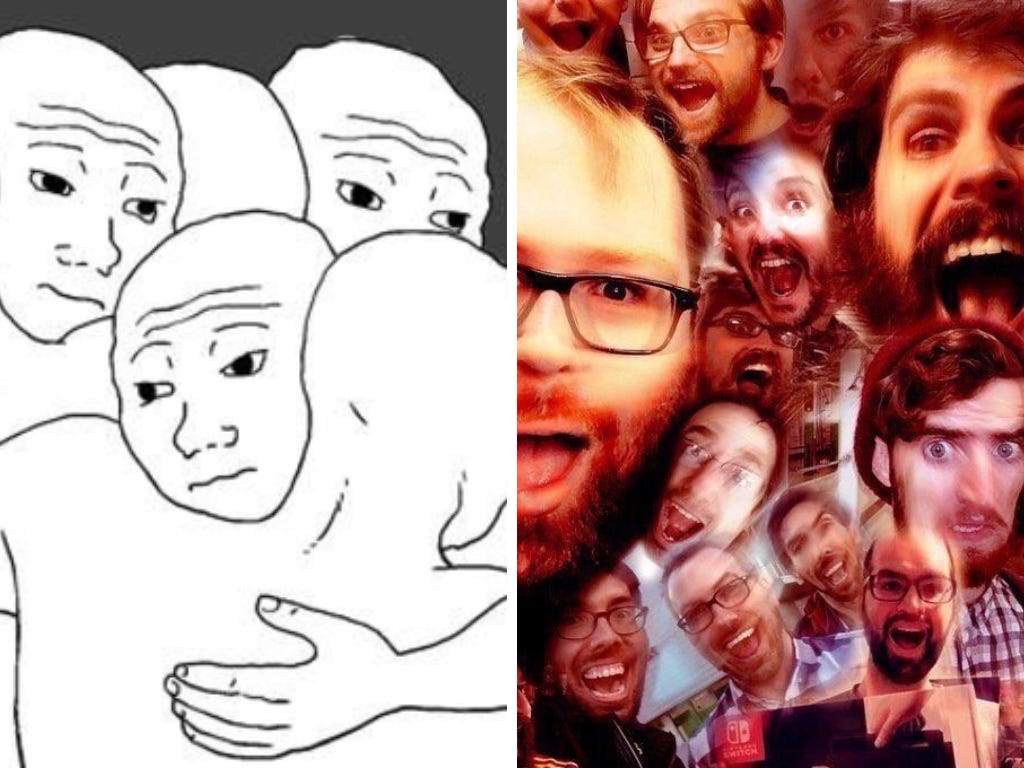In their 2013 piece “Further Materials Toward a Theory of the Man-Child,” Moira Weigel and Mal Ahern introduce the concept of the Man-Child as part of their critique of Tiqqun’s Preliminary Materials for a Theory of the Young-Girl. According to Weigl and Anhern, the Man-Child has the following character traits:
Is indecisive and does not know what to do,
He has entitlement over his indecision,
Uses irony to evade being taken seriously,
Fears commitment and avoids serious relationships.
I would also add that the Man-Child fantasizes about being the “GOAT at Life,” desiring to be the greatest at something but lacking a clear direction or the will to apply their potential greatness. What diminishes their will is the cope trifecta of the Man-Child, which consists of the following habits:
Porn,
Weed,
Video games.
The Man-Child was normalized in popular culture with Judd Apatow's films in the aughts, and the likes of Seth Rogan and Jonah Hill were archetypal Man-Children.
From a Jungian perspective, the Man-Child is dominated by the archetype of the Devouring Mother and harbors either a longing for or resentment toward the Absent Father, depending on which side of the culture war he aligns with. The Devouring Mother may be represented by his actual mother, who overprotects and smothers the Man-Child’s potential because she distrusts his ability to live independently, fears for his safety, and uses emotional manipulation to keep him close, thereby maintaining her nurturing role indefinitely.
The Devouring Mother could also be represented by the broader culture, which overvalues safety and distrusts masculine instincts. The Absent Father results from either lacking a father figure entirely or having one who provides material support but offers no moral guidance. No fatherly role models exist today, except when Jordan Peterson emerged, embodying the father archetype and becoming, for good or ill, the “father of the internet.”
The Man-Child transcends the culture war; he does not belong to the right or left. Yet, there are specific expressions from each polarity. On the culture war right, the Man-Childs are known as “incels,” characterized by a cope trifecta of misogyny, misanthropy, and self-hatred. On the culture war left, the Man-Childs go by a few names—“bugmen,” “soyboys,” and “nu-males”—defined by a cope trifecta of consumerism, conformity, and captivity. The former is marked by “the feels,” a form of nihilistic “black-pilled” depression, and the latter by the “soy face,” an expression of aggressive submission.
The primary advice to “become a man” and escape Man-Childhood:
Stop watching porn, doing weed, and playing video games,
Lift weights and get in shape,
Cultivate a brotherhood,
Get married and start a family.
I agree with the recommendations mentioned, but they overlook a crucial aspect and fail to address the cultural gravitational pull of Man-Childhood. Additionally, the argument stems from a place of shame, and both sides of the culture war use shame against the Man-Child. This approach is ultimately ineffective and only reinforces their coping trifecta of choice. What you shame stays the same.
My current attitude toward the Man-Child is love. I no longer want to participate in their shaming. With love, I honor the core characteristic identified by Weigel and Ahern: indecision. The Man-Child’s uncertainty is understandable today. Indecision often leaves one to face unresolved emotional pain, which, without the proper skills to address it, usually leads to one of the coping trifectas.
I also believe that the Man-Child’s indecision presents an opportunity to uncover the deep code of decisiveness. This skill has been overlooked and not adequately taught by our parents, schools, or media. This skill also aligns with my interest in practical wisdom, which I see as a form of existential wayfinding that guides one toward the way, and virtue more broadly, representing an excellent sense of what is good.
I have been writing about these topics from a meta-perspective, but I think it’s time to approach them more directly from the standpoint of my own demographic, namely, a heterosexual male. I see a lack of literature for men that is post-shame, comes from a place of love, honors what is, and truthfully rediscovers what is good, all while orienting toward a wholesome masculinity that can meet the moment.






